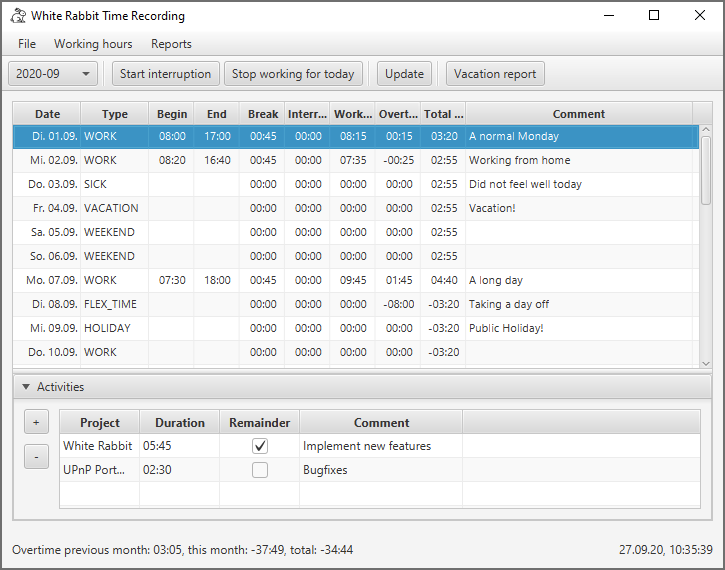If you ever have to selectively convert WordPress blog articles to a static web page, take a look at the Firefox extension “Copy as Markdown”. It’s a real time saver.
Today I had a good opportunity to reflect on how I select software. Of course there are rational criteria like whether it is open source, has regular releases, gets good reviews and so on.
But then there is also the matter of taste.
Big shout out to our friend Ayan Kumar Halder, who held a talk with me on the Xen Summit. Ayan talked about traceability in the Xen functional safety project and I contributed a video explaining how OFT fits into the picture.
Watch the recording of the talk on the Xen YouTube channel!
Also, please check out the other FuSa talk Ayan held together with his colleague Michal Orzal.
Need a tool for tracking your working time? Try WhiteRabbit!
We just released version 1.0.0 on GitHub.

It took a while, but now we finally released version 0.7.0 containing the Gradle plugin for OpenFastTrace 3.0.2.
There were some issues that delayed the release:
- The configuration of plugins changed in Gradle 6.0. The old API is deprecated and will be removed in Gradle 7.0, so we had to migrate to the new API.
- Calculating the test coverage of Gradle plugin integration tests requires plugin jacoco-gradle-testkit-plugin. With new Gradle versions the test task fails under Windows with exception message
Failed to create MD5 hash for file content. This is a known issue caused by a gradle background process locking the Jacoco coverage result filebuild/jacoco/test.exec. Fortunately there is a workaround described in the issue. Now Sonarcloud reports a test coverage of 90% for the plugin.
The new Gradle plugin requires Java 11 and Gradle 6.0. We ensure compatibility with versions 6.0 and 6.4.1 with additional integration tests.